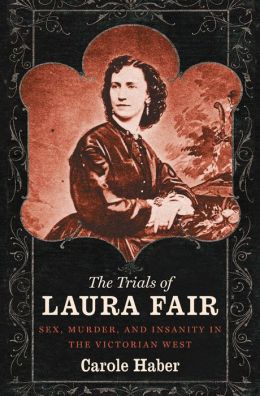On November 3, 1870, on a San Francisco ferry, Laura Fair shot a bullet into the heart of her married lover, A. P. Crittenden. Throughout her two murder trials, Fair's lawyers, supported by expert testimony from physicians, claimed that the shooting was the result of temporary insanity caused by a severely painful menstrual cycle. The first jury disregarded such testimony, choosing instead to focus on Fair's disreputable character. In the second trial, however, an effective defense built on contemporary medical beliefs and gendered stereotypes led to a verdict that shocked Americans across the country. In this rousing history, Carole Haber probes changing ideas about morality and immorality, masculinity and femininity, love and marriage, health and disease, and mental illness to show that all these concepts were reinvented in the Victorian West.
Haber's book examines the era's most controversial issues, including suffrage, the gendered courts, women's physiology, and free love. This notorious story enriches our understanding of Victorian society, opening the door to a discussion about the ways in which reputation, especially female reputation, is shaped.
A few blurbs:
"In her outstanding new book, Carole Haber examines Laura Fair’s murder case, as well as its lasting significance and continuing impact on the portrayal of women in the press and popular media. The scholarship is excellent and the read is thrilling." --Gordon Morris Bakken
"In this absorbing account of a notorious San Francisco murder, Carole Haber probes the multiple versions of the female defendant created by prosecution and defense attorneys to explain why she shot her lover. Haber then goes beyond these competing ideas of gender to offer an ingenious explanation of the crime that has puzzled mystery lovers for well over a century." --Patricia Cline CohenMore information is available here.
